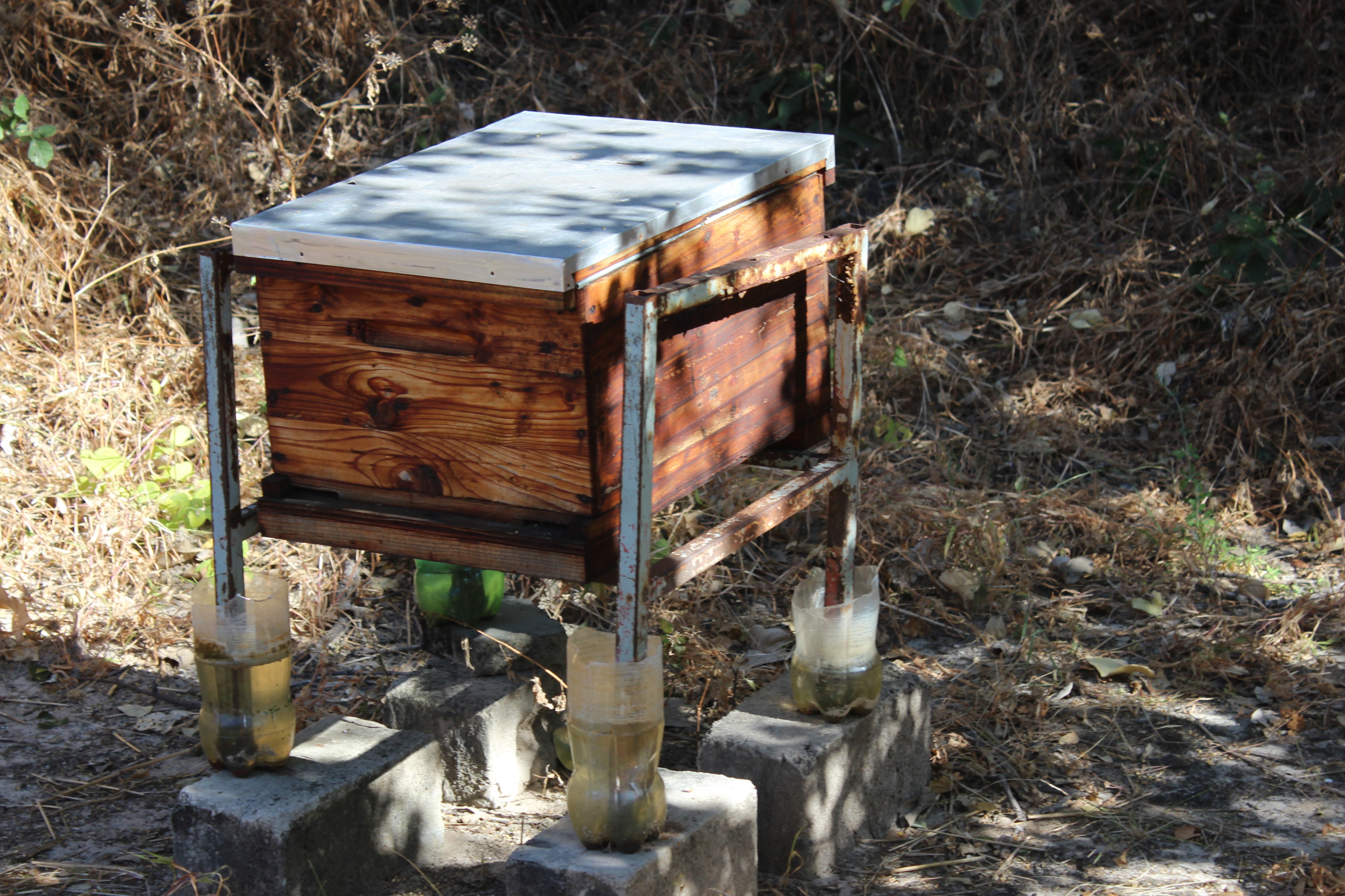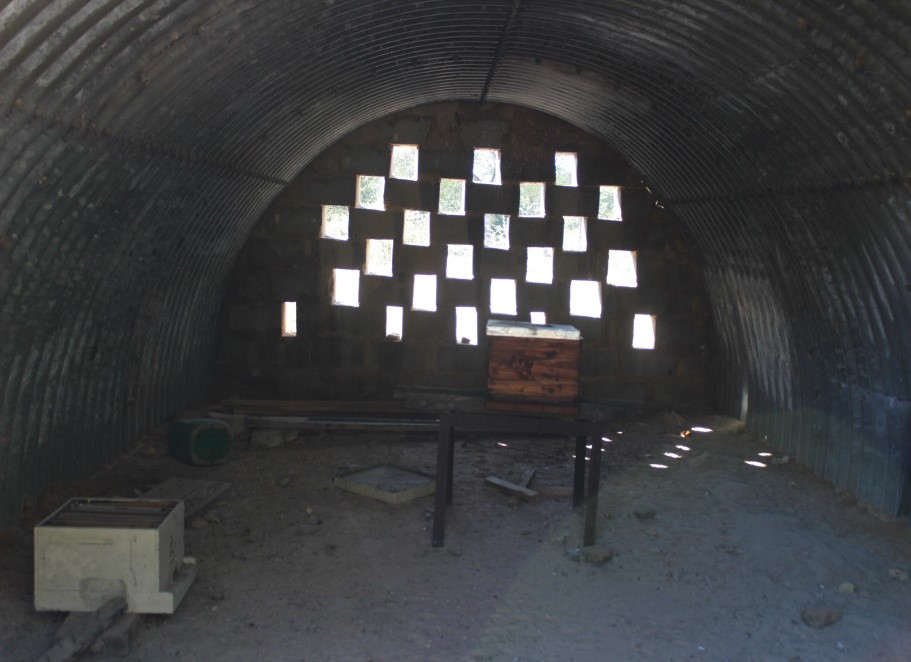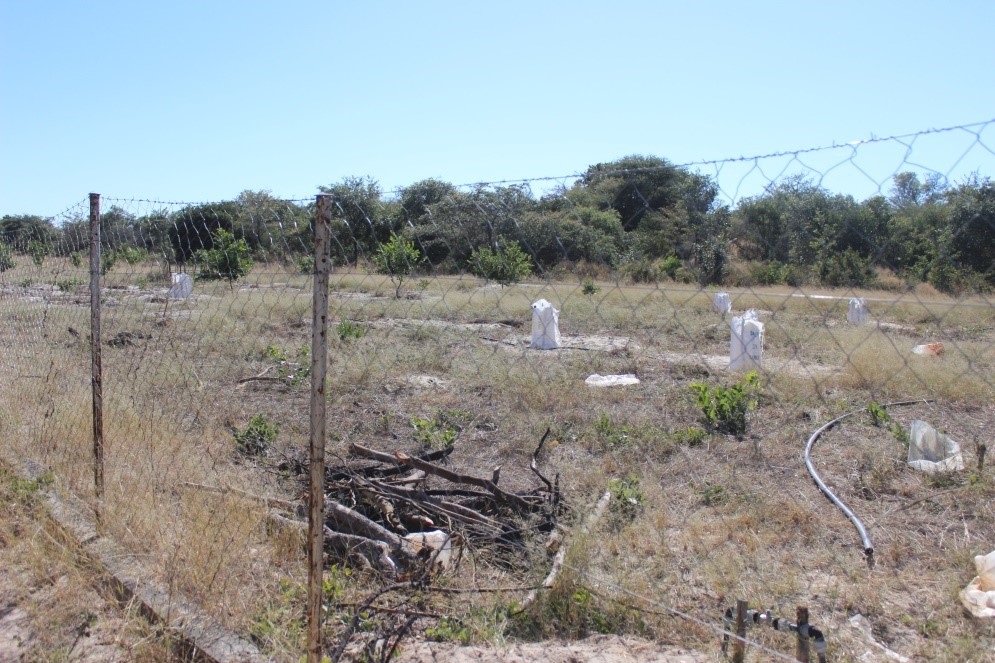Bee keeping - Kavangoeastrc
Bushman honey project prospers
35-year-old David Mushavanga runs a bee keeping project at Omega settlement situated some 270 kilometers east of Rundu in the Mukwe Constituency of the Kavango East Region. While he was in his twenties and unemployed, Mushavanga had a dream for a better future for himself and his community.

In 2007, together with several community members Mushavanga initiated the bee keeping project to explore his traditional skills and develop a modern project to uplift his community.
Mushavanga narrated that although he anticipated the project to kick off easily; the implementation of the projects was challenging.
When I started I thought it would be easy and things will go as planned, but I went through a lot of levels and challenges. The foundation was not easy. He said.
Before the establishment of the project, he consulted the traditional authority who granted him permission and allocated a piece of land for his project. The Ministry of Environment, Tourism and Forestry also assessed the viability of the project and granted him approval. Thereafter, he also re received training on bee keeping through Office of the Vice President.
Subsequently, he was sent back home with two bee hives and one bee suit to the unknown future. Determined to undertake the journey, he was joined by some members but while still at its infancy stage with no income generated in a years span, some members dropped out.
In 2009, the project had his first harvest. The honey produced sold out in a short period of time and the demand rose. That encouraged him and his team to move forward as those were signs of brighter days ahead. Consequently, Mushavanga had to work hard so that he can increase his produce.

According to Mushavanga, Beekeeping is not a walk in the park, as its survival depends on pollen and nectar as a food source.
I started without plants, meaning my bees had nowhere to stay; they could only stay during summer time and the rainy season. Afterwards, they would emigrate; and controlling their movement was very hard. He added.
This challenge prompted Mushavanga to start a vegetable garden and an orchard where he planted fruit trees. He further plans to continue planting more flowering trees and winter resistant ones. This is to prevent bees from migrating due to food shortage and ultimately improves honey production.
He added that even though it will take about three years for his orchard to yield results, more bees will increase his production and consequently generate more income. Additionally, the trees will yield fruits that he can sell and distribute within his community.
Moreover, he plans to boost his honey production by increasing the bee hives to at least 10 and installing supers or chambers where pure honey is stored.
Mushavanga narrated that although he did not realise it at the beginning, he just observed that the bees have migrated or affected by diseases. Sometimes trees do not flower hence there is food shortage for the bees. His conclusion is that it has to do with climate change.
I also engaged experienced people and consulted the elders who informed me that in the past, the bees were much easy to control. However, climate change affected their activities. When we receive heavy rains, it becomes cold and this affects the bees and they can die. He said.
Following several media reports about his project, the Ministry of Urban and Rural Development came on board and has since been supporting the project through the One Region, One Initiative OROI program.
About three years ago, the ministry built a warehouse and a processing facility and fenced it off at a cost of about N$ 623 700.00
Furthermore, in an effort to provide water to the project, the Ministry recently drilled a borehole for the project at the cost of N$356 000.00. In the past, they depended on water provided by Namwater which was costly.

The bee keeping project currently has seven members of whom two are female and four are male. Mushavanga is optimistic that, the future looks promising as signs of success its success are evident.
